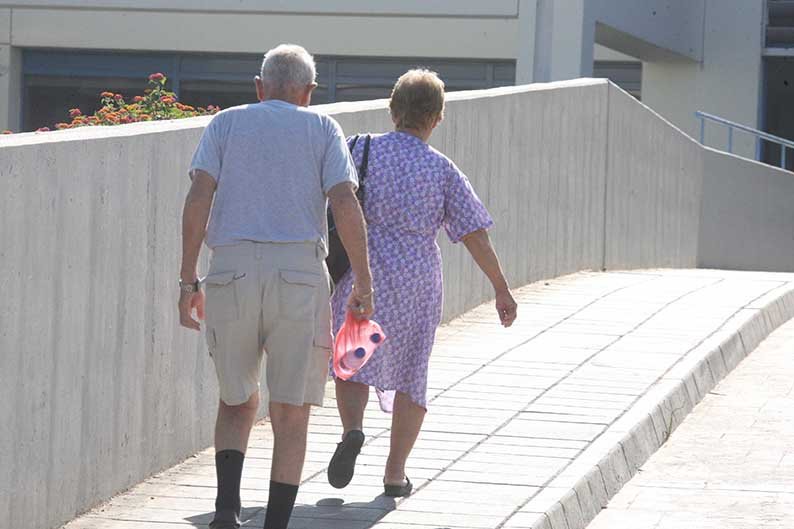Cyprus urgently needs to draft and implement a national strategy for its growing elderly population that will provide affordable, quality, and specialised care, local stakeholders warned, in light of complaints over patient care for the over 75s in public hospitals.
At a press conference on Wednesday, during which a memorandum of understanding and cooperation was signed between the Cyprus Federation of Patients’ Associations (Osak) and the Cyprus Third Age Observatory (Ctao), an Ngo for the protection of pensioners’ rights, the two groups presented the complaints they received in recent months about elderly people left naked or tied to hospital beds.
“With the high and continuously increasing life expectancy in Cyprus, the elderly will constitute in a few decades 30 per cent of the population, which will put constant pressure on the health system, public spending and our society in general,” Ctao president Demos Antoniou said.
Osak president Marios Kouloumas said the organisation receives approximately fifty complaints per month, most of which concern complaints about medicines and treatments, as well as complaints about the behaviour and quality of service by nurses and doctors to patients in public hospitals. He noted that the vast majority concern people aged 75 and over.
In January, Osak published complaints from citizens concerning elderly patients who were tied to their beds. Namely, Osak had received a complaint about an elderly man, whom his son-in-law had found during the visit, tied to his bed. After investigating this incident, it was found that on the same day and in the same ward, other elderly people were tied to their beds.
Regarding the time it takes to receive answers about an incident that is reported, Kouloumas said that on issues such as mixed wards, they quickly receive answers, which, however, “are not satisfactory”.
Regarding reports of incidents, such as patients who were naked or tied to their beds, Osak’s president said that “the investigation of such incidents is slow.
“We are still waiting for answers, but the answers we are getting are not what we expect, which will solve the perennial problem of behaviour and care. They are more excuses for the incident, which is considered isolated. Such approaches do nothing to address the real problems that exist and solve them,” he noted.
For his part, the Ctao president Demos Antoniou, said that the Ctao receives several complaints, which however do not proceed to the end, since the complainants “fear vindictive behaviour”.
Antoniou explained that health workers either avoid the patient or do not help them, while there are cases where they do not change patients’ incontinence pads. Specifically, he referred to a case where a patient asked for water and was given some after waiting four hours.
Antoniou stressed the importance of training and evaluating health workers in the patient-centred approach, especially in communication and recognition of the psychological state of patients”, but also noted that this negative image did not represent the majority of healthcare professionals.
“Our plight as a state but also as a society is unfortunately also evidenced by the fact that the HIO was obliged to include the care of elderly and elderly people in the quality criteria concerning the compensation of Gesy hospitals”, Antoniou noted.
“The needs of the elderly increase year by year in an ever-changing environment, especially when modern lifestyles and technology are evolving rapidly. If decisions are not taken today to implement policies and programmes gradually through the drafting of a national strategy for the elderly, in the next few years it will be too late to curb the problems that young generations and future elderly people will have to face due to the aging of the population,” Antoniou warned.







Click here to change your cookie preferences